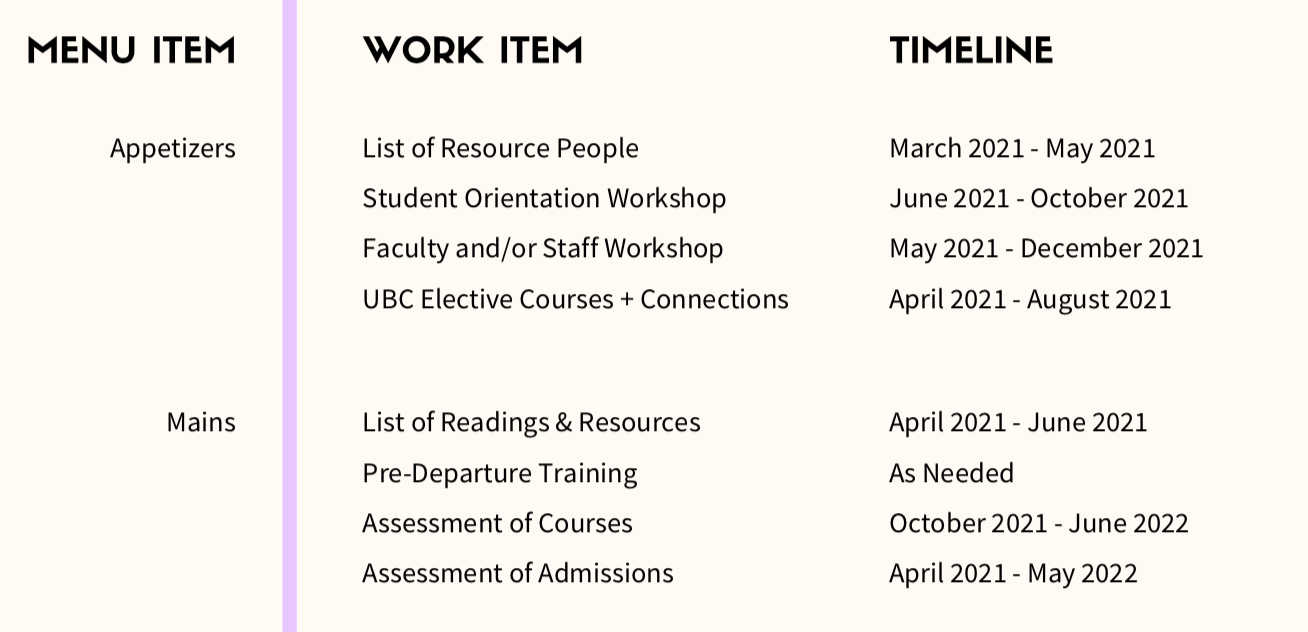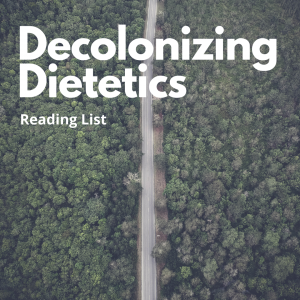By Taq Kaur, Bhandal
In 2020 I was approached by the amazing team at UBC Dietetics to collaborate on several projects to move forward decolonization within the department. I am always mindful of ensuring that we all have a working definition of decolonization when we use the term. The go-to definition I use is from scholars Eve Tuck and Wayne Yang (2012), who share that decolonization means, “the [rematriation] of Indigenous land and life.” As a feminist researcher and menstrual cycle super-nerd, I choose to use the maternal iteration of giving back land in order to signify that we all come from the earth. Without her, we would be food-less, water-less, and simply would cease to exist in our current form as humans. Read Eve and Wayne’s paper here: Tuck and Yang (2012) Decolonization is not a metaphor (PDF).
I am so excited to be participating in the project with the team. There are, of course, a number of challenges that come to mind when it comes to preparing the next generation of Dietitians to approach their work through the principles of decolonization. In particular, one has to acknowledge that the very institutions we work in (e.g. The University of British Columbia, the health care system) are themselves part of the process of settler-colonialism. However, in the case of this work, I feel strongly that optimism, positivity, hopefulness, and compassion are what are going to inch us closer and closer to making it happen.
So we took on the challenge. Myself, Gordon Ly, Kara Vogt, Tamara Cohen, Ali Browes, and Tamar Kafka have been working closely since March 2021. Over the course of the last several months, we’ve begun making a number of adaptations to the program:

Using the principles of cyclical living and working in the way that our plant ancestors do, we’re slowly making decolonial adjustments to the environment we work in. Some examples include: (1) The publication of a Decolonizing Dietetics Reading list; (2) Rigorous syllabi reviews to ensure representation of Indigenous worldviews and to make updates to anti-racism praxis; (3) Increased diversity in the list of approved electives that students in the Dietetics program can take at UBC.
There is still more work to be done. The team is working through new ways to approach case studies in dietetics and how to ensure accessibility in practicum placements. Moreover, the field as a whole has some ways to go in terms of representation of Indigenous Peoples and/or racialized folx. Nonetheless, my gut reminds me each day that we are making progress.
The signals from the Earth to change our ways are getting louder and louder each day. With the Decolonizing Dietetics project, we aim to make upstream changes to an important branch in the Canadian health care system. A decolonial framework can help shape how we nourish our communities, relate to the planet, and approach food as medicine.
In solidarity!
Taq
Taq Kaur Bhandal is CEO of the Mahwari Research Institute, an independent Canadian think tank studying pleasure, periods, and planetary positivity, all through the intention of social justice. To connect with Taq visit: https://mahwariresearchinstitute.ca/
